SleepCmd
The SleepCmd team conducts technological research to develop new tools for processing physiological data that it applies to sleep-related diseases and neurodevelopmental disorders. Our research is conducted at the preclinical level in genetic and experimental mouse models, and at the clinical level in the Physiology, Psychiatry and Sleep Centres of the Robert Debré and Bichat hospitals.
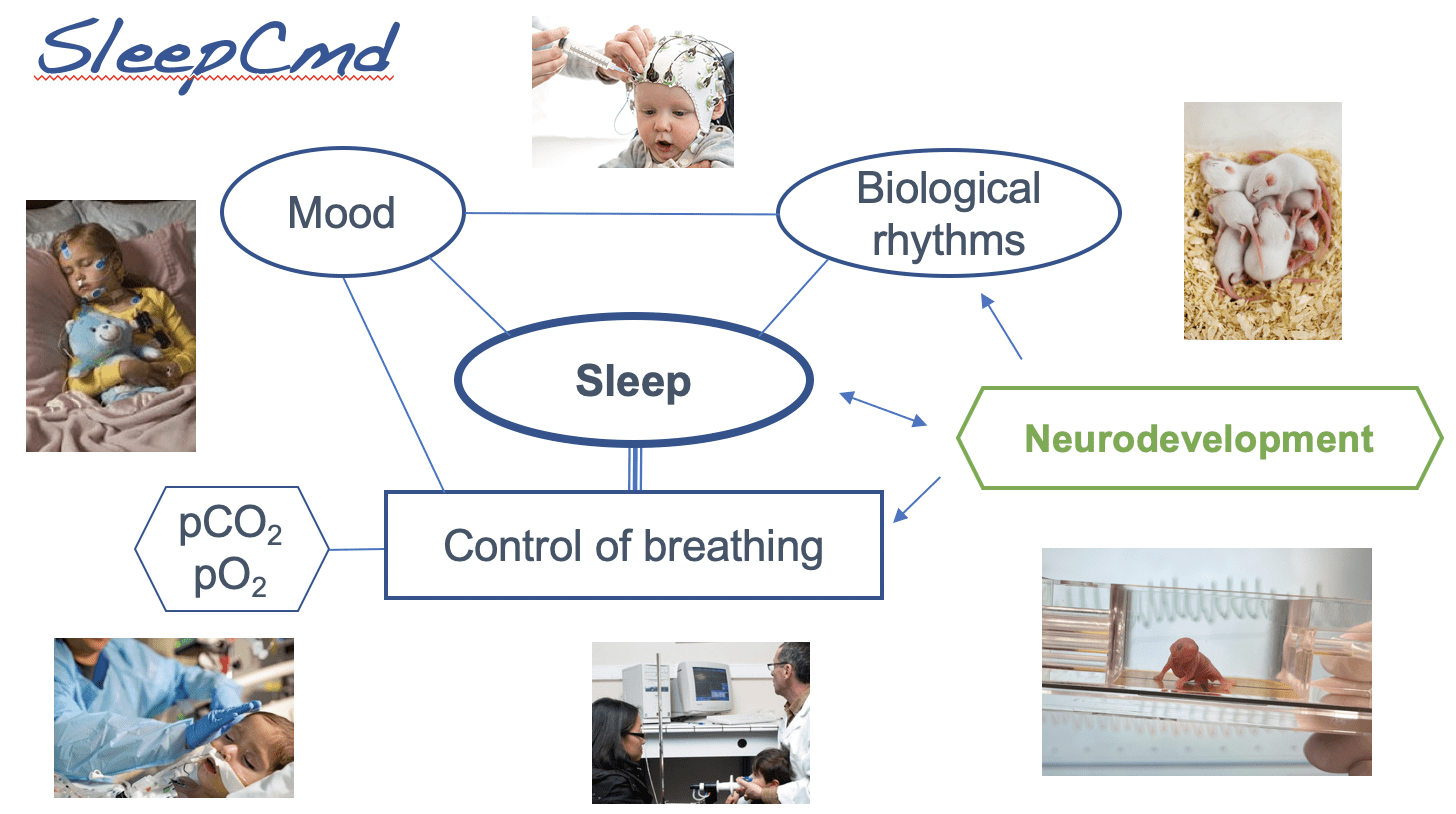
Methods
Over the last two decades, mouse models, studied at various stages of postnatal development, have become essential to study normal or pathological brain development, to understand the molecular and cellular mechanisms of diseases, to develop neuroprotective treatments and to establish their functional effectiveness in vivo. At the clinical level, SleepCmd is developing data processing methods to allow the fine analysis of the physiopathology of sleep-related diseases.
© NeuroDiderot
Sleep-related diseases: a major public health issue
The management and treatment of sleep-related respiratory disorders is a major public health issue, particularly during the neonatal period. Recently, important discoveries have been made to identify the neurological structures of respiratory rhythm generation in mice, opening the way to the development of new diagnostic and treatment tools. Furthermore, in recent years at the clinical level, new tools for advanced physiological signal processing have been developed.
Research objectives
Our objectives are :
- to study the pathophysiology of sleep-related breathing disorders
- to study the genetic determinants of respiratory control, and to identify the neurological supports, especially in pathological situations
- to find and test biomarkers and drugs for sleep-related diseases
Ongoing research
Our work applies to research on several rare paediatric pathologies such as Ondine syndrome (CCHS) or Auriculo-condylar syndrome, as well as to sleep apnoea, narcolepsy, certain myopathies and sudden death in epileptic patients (SUDEP).
Recent publications
- Obstructive apneas in a mouse model of congenital central hypoventilation syndrome., Am J Respir Crit Care Med. 2021.
- Cross-sectional case-control study of the relationships between pharyngeal compliance and heart rate variability indices in childhood obstructive sleep apnoea., J Sleep Res. 2021.
- Sleep complaints are associated with increased suicide risk independently of psychiatric disorders: results from a national 3-year prospective study., Mol Psychiatry. 2021.
- Mind-wandering, or the allocation of attentional resources, is sleep-driven across childhood., Sci Rep. 2019.
- Breathing under Anesthesia: A Key Role for the Retrotrapezoid Nucleus Revealed by Conditional Phox2b Mutant Mice., Anesthesiology 2019.
Team members
Our team is composed of experts in the fields of physiology, applied mathematics and physics, signal and video processing, mechanical, electronic and biomedical engineering, and preclinical and clinical drug testing. See a list of SleepCmd team members here !
Contacts
Marie-Pia d’Ortho
Service de Physiologie – Explorations Fonctionnelles et Digital Medical Hub
Centre de compétences Maladies rares Narcolepsie et Hypersomnie idiopathique
Hôpital Bichat, Assistance Publique – Hôpitaux de Paris
46 rue Henri Huchard, 75018 Paris
France
Boris Matrot
NeuroDiderot, Inserm UMR1141
Bâtiment Ecran, 4ème étage
Hôpital Robert Debré
48 Bd Sérurier
75019 Paris
France
Research programs
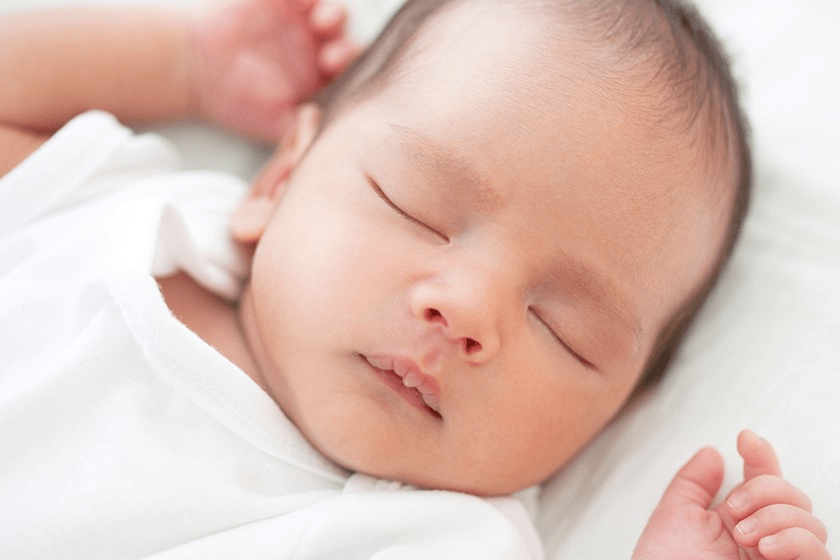
Sleep2Develop research program
The Sleep2Develop program investigates the role of sleep as a promotor of neurodevelopment and identifies the sleep determinants of childhood development. This is rephrased as Sleep(to)Develop? or Sleep(to)Develop! Our sleep research combines clinical and...
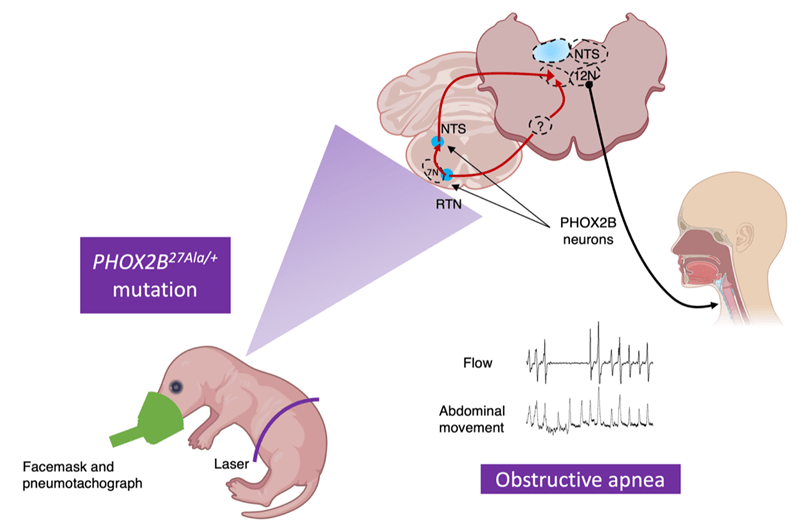
Research program on CCHS
CCHS is a disease characterized by a congenital impairment of the central control of breathing, associated with dysfunctions of the autonomic nervous system (ANS) (Gallego, 2012). At birth, patients have severe and persistent hypoventilation during sleep and a...
NeuroDiderot Teams
Read more
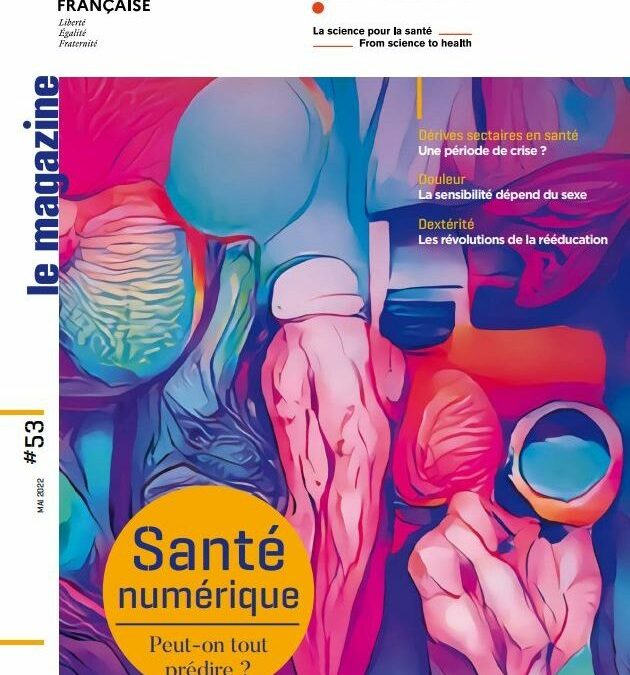
Breaking news for Central Congenital Hypoventilation Syndrome
In collaboration with Dr. Muriel Thoby-Brisson (Université de Bordeaux, Institut de Neurosciences Cognitives et Intégratives d’Aquitaine, CNRS), and thanks to Fondation Air Liquide, Association Française du syndrome d'Ondine and start-up company ATMOSR, team NeoPhen...

Bad Dreams and Nightmares Preceding Suicidal Behaviors
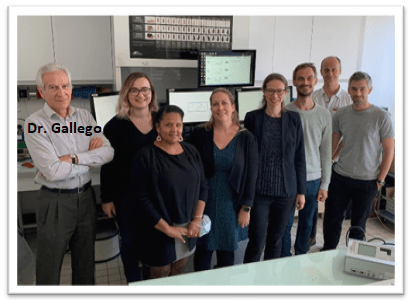
Project – CCHS Foundation 2021
Team SleepCmd, in collaboration with team NeuroDev (Dr. Andrée Delahaye), receive support from the CCHS Foundation in 2022 to study the genetic dysregulations that could be associated with Congenital Central Hypoventilation Syndrome (CCHS). Members of the SleepCmd and...
